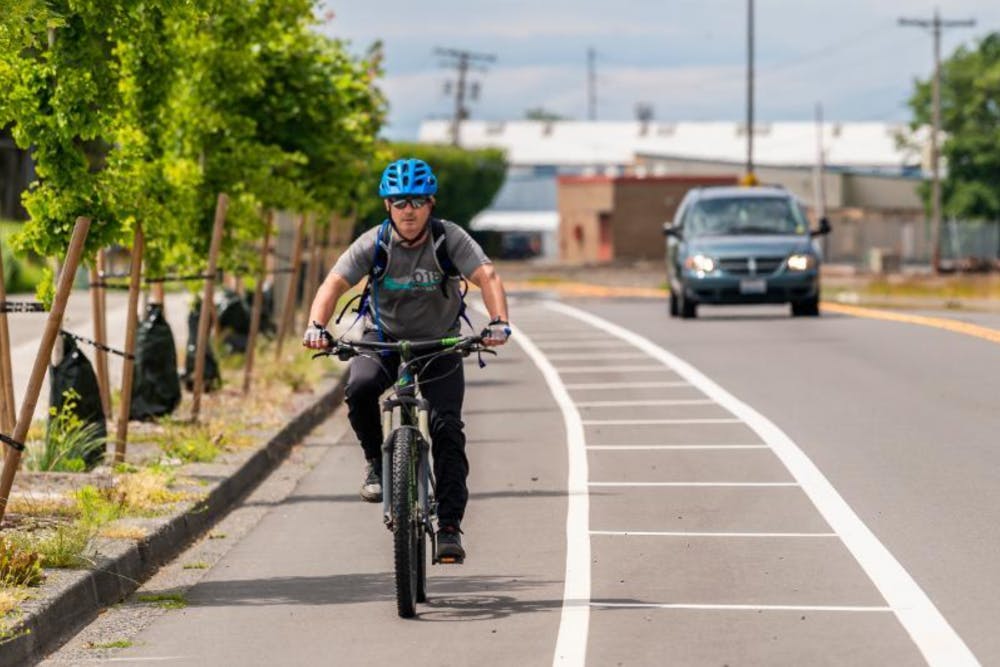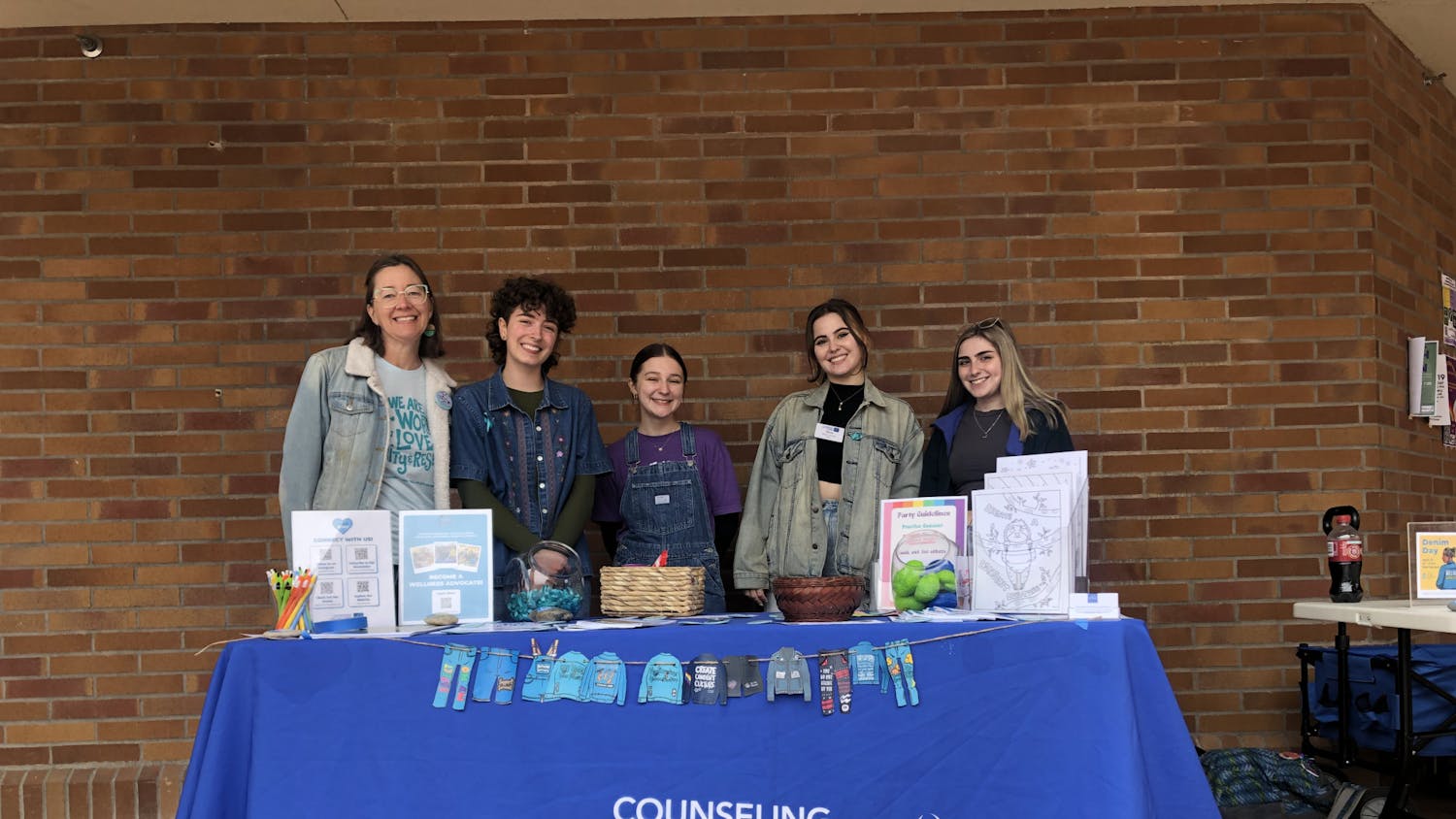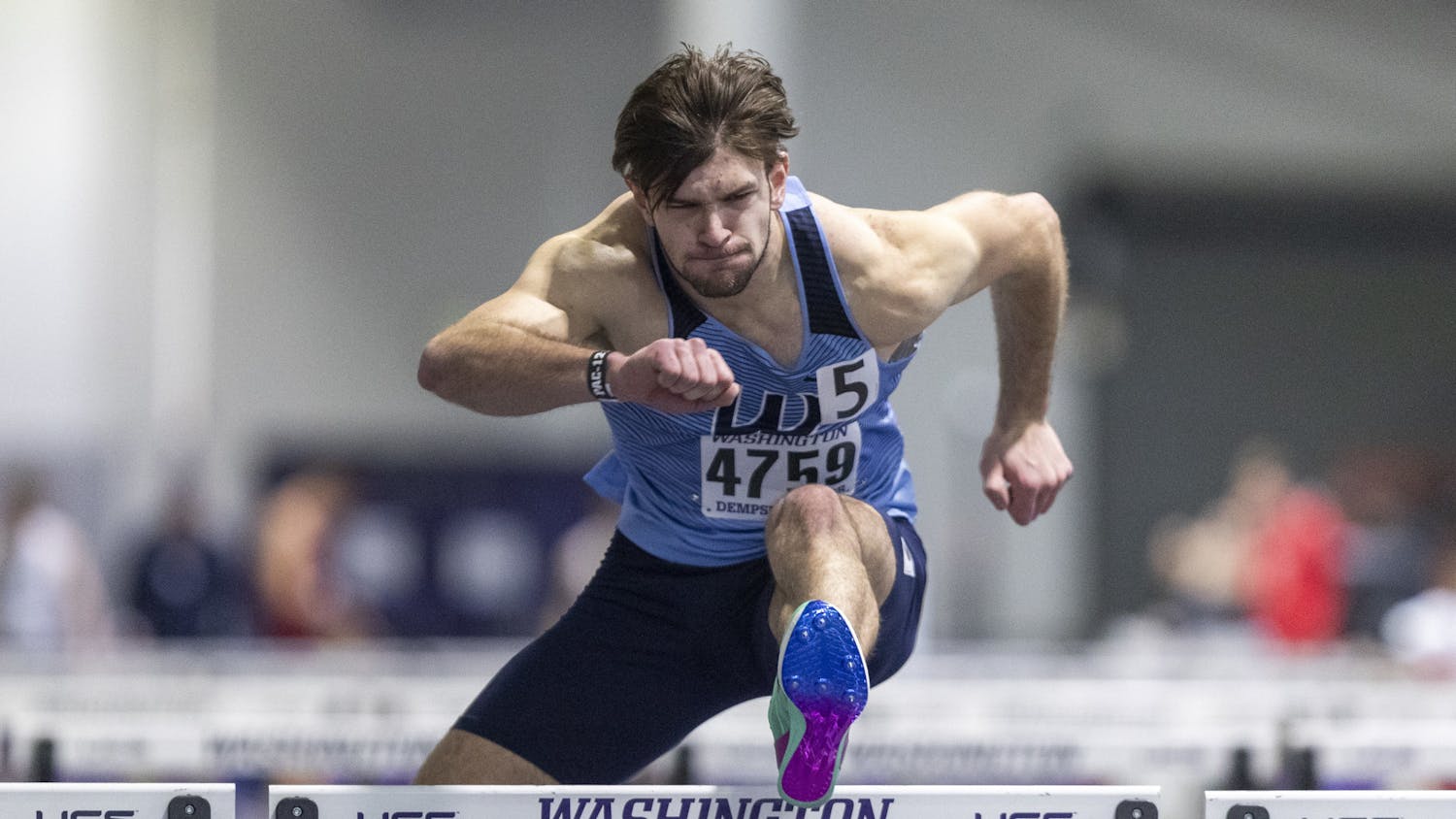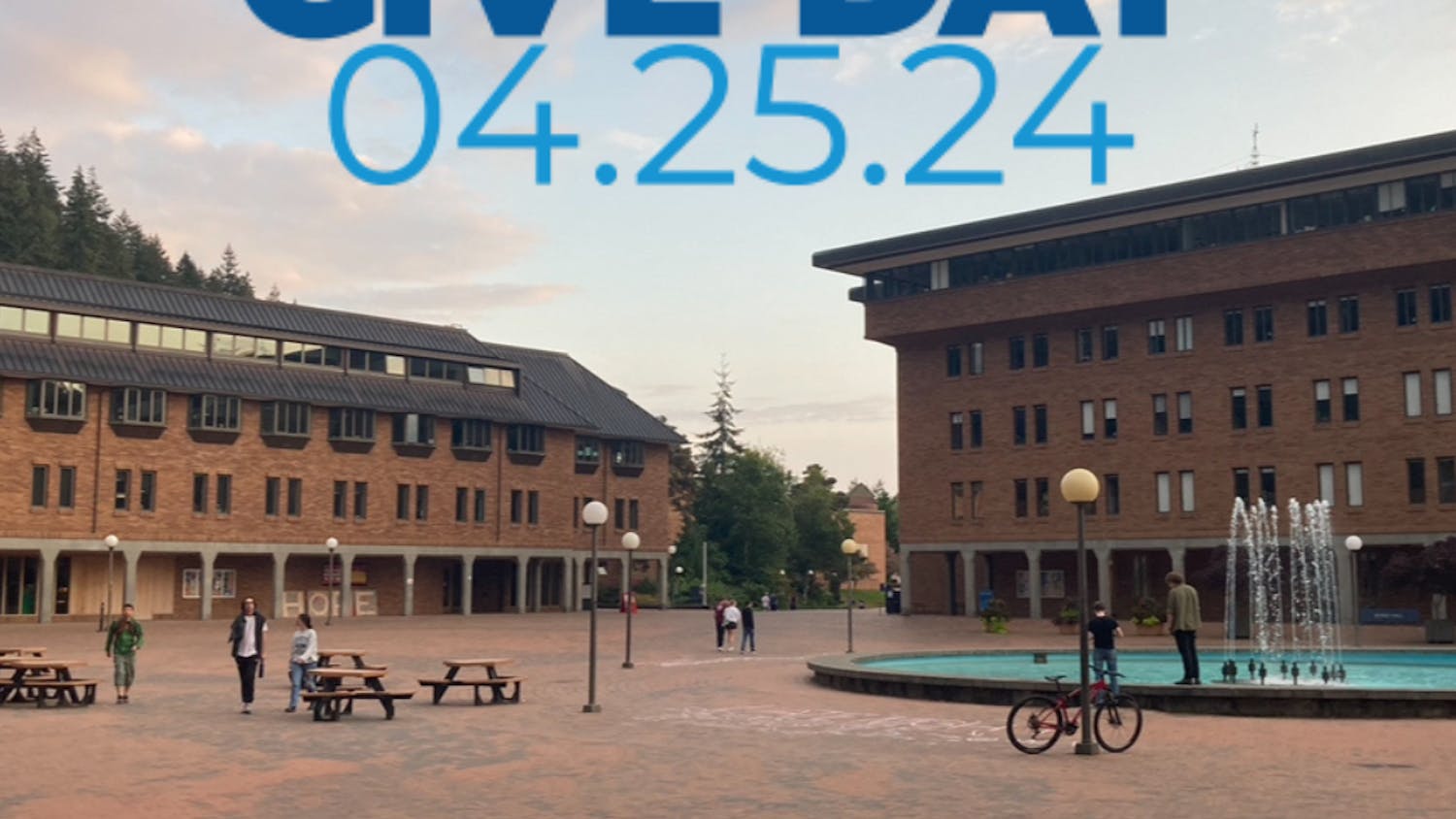The city’s transportation improvements focus on all commuter types and provides safe access for everyone

Laura Henkel often finds herself wary of tinted windows.
“I'm always like, ‘OK, I know that person's looking to the left, but do they really see me?’”
Henkel, founder and owner of Mad Dash Bicycle Courier Service, said predictability and anticipation are the best strategies for staying safe during her daily 25-mile courier route.
Bellingham roads have become familiar to Henkel after 28 years in the business: both the good ones and bad ones.
Since 2007, the League of American Bicyclists has recognized Bellingham as a silver-level bicycle friendly community.
In December 2020, the city was awarded the gold-level standard, becoming the second city in Washington state, alongside Seattle, to achieve the status.
Achievement, according to the award’s selection process, happens when a community makes efforts to educate and encourage road safety through a lens of equity in addition to getting more people on bikes.
Chris Comeau, transportation planner for Bellingham public works engineering, said moving from the silver to gold award was quite an extensive process and required many community improvements first.
“One of the keys was growing our bicycle network throughout the city,” Comeau said. “In terms of safety and comfort, you know, it has to do with the wide variety of different bicycle facility types, getting people where they want to go, trying to reduce any kind of collisions that are out there.”
In response, the city formed a public safety campaign to address the educational aspects of everyone involved in creating road safety.
“We're trying to reach everybody who’s using our transportation system,” Comeau said. “Not just people walking, not just people biking, but also people, you know, crossing streets to bus stops, drivers behind the wheel of various kinds of vehicles, so that everybody understands that everybody has both rights, and responsibilities out on the transportation network.”
Comeau also prepared The Local Road Safety Plan, utilizing previously developed safety plans to address common locations of pedestrian and bicycle collisions.
Additionally, data gathered in the Bellingham Transportation Fund over 10 years showed the city created nine miles of improved sidewalks, 40 street crossings, 52 miles of bicycle facilities and 46 miles of repaired or maintained streets.
Paul Tolmé, content strategy and media relations manager for the Cascade Bicycle Club, said investing in the improvement of transportation infrastructure has a large part in creating safe and inclusive communities.
The CBC works at the state level, alongside political advocacy organization Washington Bikes. Together, the groups promote transportation spending devoted to infrastructure, while also encouraging cities around Washington to invest in safe biking systems.
The group’s main goal is to create safe places for bicyclists and commuters of all types.
Mary Anderson, transit planner for Whatcom Transportation Authority, also said providing a safer transportation environment comes from focusing on sustainable transportation.
“In order for a community to be successful with sustainable transportation, we need to have multiple safe opportunities for people to walk, bike and ride the bus,“ Anderson said.
Anderson noted that nearly 25% of Washingtonians not having a driver's license makes it even more important to provide those variations of safe commuting opportunities in Whatcom County.
“By providing more infrastructure, which the city has been doing more of that bicycle and pedestrian infrastructure, it makes it safer for people to be able to choose not to drive,” Anderson said. “And be able to expand their menu of transportation options.”
Although Bellingham has reached the gold-level bicycle friendly community standard, Comeau said that updates and additional projects are in the works.
“But we gotta get through this pandemic first,” Comeau said.
As for Henkel, she will still be on the road every day, adding that staying safe will be from defensive riding as she pedals through downtown, delivering mail to her customers.





